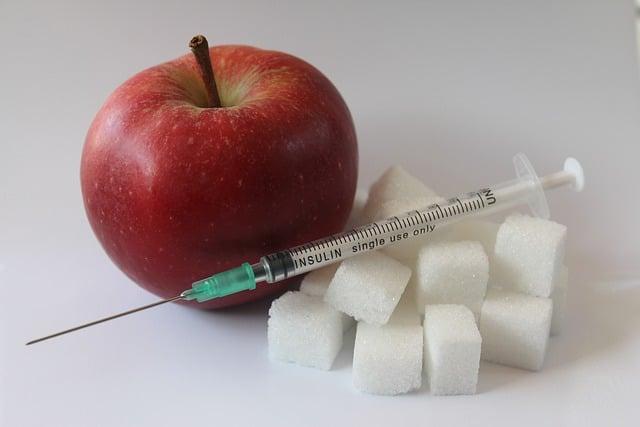
Diabetes is a chronic condition that affects millions of people worldwide. It is a condition that occurs when the body is unable to properly regulate blood sugar levels. Managing diabetes requires a comprehensive approach that includes medication, monitoring blood sugar levels, and making lifestyle changes to promote overall health and well-being.
One of the most important aspects of managing diabetes is maintaining a healthy lifestyle. This involves making positive changes to your diet, engaging in regular physical activity, managing stress, and getting enough sleep. In this article, we will discuss some tips for maintaining a healthy lifestyle while managing diabetes.
1. Follow a Balanced Diet
One of the most important aspects of managing diabetes is maintaining a balanced diet. This means eating a variety of foods from all food groups, including fruits, vegetables, whole grains, lean proteins, and healthy fats. It is also important to monitor your carbohydrate intake as carbohydrates can impact blood sugar levels.
It is recommended to consult with a dietitian or a healthcare provider to create a meal plan that is tailored to your individual needs. Monitoring your blood sugar levels before and after meals can help you better understand how different foods affect your body.
2. Engage in Regular Physical Activity
Regular physical activity is essential for managing diabetes. Exercise helps to improve insulin sensitivity and can help to regulate blood sugar levels. It also helps to control weight, improve cardiovascular health, and reduce stress.
It is recommended to engage in at least 150 minutes of moderate-intensity aerobic exercise per week, as well as strength training exercises at least two days per week. Some examples of aerobic exercise include walking, cycling, swimming, and dancing. It is important to consult with a healthcare provider before starting any new exercise program to ensure it is safe for you.
3. Monitor Blood Sugar Levels
Monitoring your blood sugar levels is a key aspect of managing diabetes. By regularly checking your blood sugar levels, you can better understand how your body responds to different foods, medications, and activities. This information can help you make informed decisions about your treatment plan.
It is recommended to check your blood sugar levels multiple times per day, as recommended by your healthcare provider. Monitoring your blood sugar levels can also help you identify patterns and make adjustments to your treatment plan as needed.
4. Manage Stress
Stress can impact blood sugar levels and overall health. It is important to find healthy ways to manage stress, such as practicing mindfulness, meditation, deep breathing exercises, or engaging in hobbies that bring joy and relaxation.
It is also important to prioritize self-care and set boundaries to prevent burnout. Seeking support from friends, family, or a mental health professional can also help in managing stress and improving overall well-being.
5. Get Enough Sleep
Getting enough sleep is essential for managing diabetes. Poor sleep can impact blood sugar levels, insulin sensitivity, and overall health. It is recommended to aim for 7-9 hours of quality sleep per night.
Developing a bedtime routine, avoiding screens before bed, and creating a comfortable sleep environment can help improve sleep quality. If you are having trouble sleeping, it is important to discuss this with your healthcare provider to identify potential underlying issues and develop a plan to improve sleep.
6. Stay Hydrated
Staying hydrated is important for managing diabetes. Drinking enough water can help prevent dehydration, regulate blood sugar levels, and promote overall health. It is recommended to drink at least 8-10 cups of water per day, or more if you are engaging in physical activity or in hot weather.
Limiting sugary beverages and alcohol is also important for managing diabetes. Opt for water, unsweetened tea or coffee, or sparkling water as healthier alternatives.
7. Follow a Medication Schedule
If you are prescribed medication to manage diabetes, it is important to follow your healthcare provider’s instructions and take your medication as prescribed. Skipping doses or not taking medication as recommended can lead to uncontrolled blood sugar levels and potential complications.
It is important to communicate with your healthcare provider if you are experiencing any side effects, have trouble remembering to take your medication, or if you have concerns about your treatment plan.
8. Maintain Regular Check-Ups
Regular check-ups with your healthcare provider are important for managing diabetes. These appointments allow your healthcare provider to monitor your blood sugar levels, assess your overall health, and make any necessary adjustments to your treatment plan.
It is important to discuss any concerns or changes in symptoms with your healthcare provider during these appointments. Keeping track of your blood sugar levels, meals, and physical activity can also help facilitate productive discussions with your healthcare provider.
Managing diabetes requires a comprehensive approach that includes maintaining a healthy lifestyle, monitoring blood sugar levels, and following your healthcare provider’s recommendations. By following these tips, you can help manage your diabetes and improve your overall health and well-being. Remember to consult with your healthcare provider before making any significant changes to your treatment plan and to address any concerns or questions you may have about managing diabetes.

















